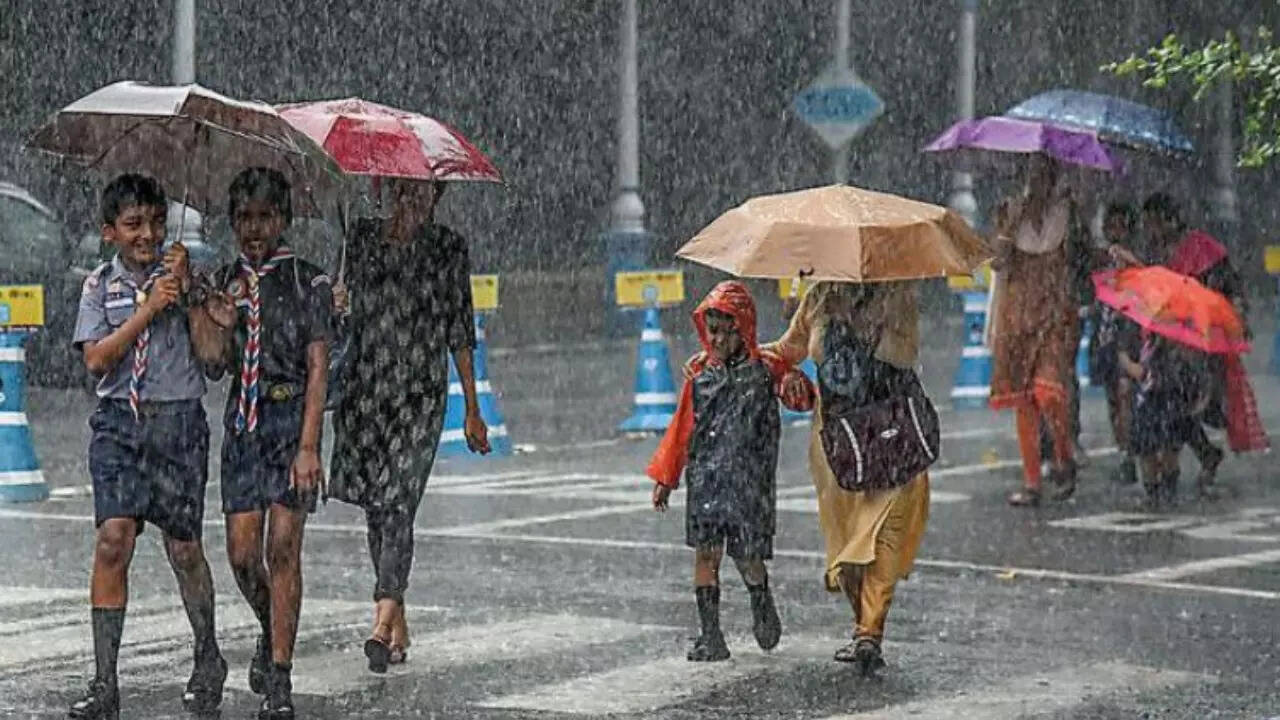[ad_1]
KOLKATA: The IPCC report anticipates Kolkata may experience temperatures of 35°C or higher for 150 days every year by the end of the current century. Extreme heatwaves, too, are expected to become more frequent and severe.
Kolkata and its neighbouring areas may get marginally higher rainfall but there may be a substantial increase in short-duration extreme-rainfall events, the report predicts. What this means is there could be short and catastrophic bursts of intense rain, explain weather scientists. “This could cause more waterlogging and flooding incidents,” said Anjal Praksah, IPCC author and associate professor (research) and research director at Bharti Institute of Public Policy, Indian School of Business (ISB), Hyderabad.
Local scientific projections say the sea level near Sundarbans, about 100 km south of Kolkata, may rise by approximately 60 centimetres by the end of this century. This rise could also lead to more frequent and severe flooding incidents in Kolkata, especially during high tides, say experts.
Super cyclones (221 kmph and above), too, are likely to increase in the Sundarbans, affecting Kolkata and neighbouring areas, say scientists. Compound climate events, like intense cyclones, high sea-level rise and increased precipitation, could pose significant challenges to coastal regions, they add, contributing to a situation where permanent displacement of populations because of weather events can become a probability. Monsoon rainfall is expected to increase beyond 2020, leading to a rise in both single-day rainfall and total annual rainfall. There may be a 50% increase in single-day maximum rainfall in Kolkata by the turn of the century.
The report underscores the urgent need for climate action to mitigate these impacts. “It is essential for governments, communities and individuals to reduce greenhouse gas emission, adapt to changing conditions and protect vulnerable regions like Kolkata from challenges posed by climate change,” Jadavpur University’s School of Oceanography professor Tuhin Ghosh said.
Kolkata and its neighbouring areas may get marginally higher rainfall but there may be a substantial increase in short-duration extreme-rainfall events, the report predicts. What this means is there could be short and catastrophic bursts of intense rain, explain weather scientists. “This could cause more waterlogging and flooding incidents,” said Anjal Praksah, IPCC author and associate professor (research) and research director at Bharti Institute of Public Policy, Indian School of Business (ISB), Hyderabad.
Local scientific projections say the sea level near Sundarbans, about 100 km south of Kolkata, may rise by approximately 60 centimetres by the end of this century. This rise could also lead to more frequent and severe flooding incidents in Kolkata, especially during high tides, say experts.
Super cyclones (221 kmph and above), too, are likely to increase in the Sundarbans, affecting Kolkata and neighbouring areas, say scientists. Compound climate events, like intense cyclones, high sea-level rise and increased precipitation, could pose significant challenges to coastal regions, they add, contributing to a situation where permanent displacement of populations because of weather events can become a probability. Monsoon rainfall is expected to increase beyond 2020, leading to a rise in both single-day rainfall and total annual rainfall. There may be a 50% increase in single-day maximum rainfall in Kolkata by the turn of the century.
The report underscores the urgent need for climate action to mitigate these impacts. “It is essential for governments, communities and individuals to reduce greenhouse gas emission, adapt to changing conditions and protect vulnerable regions like Kolkata from challenges posed by climate change,” Jadavpur University’s School of Oceanography professor Tuhin Ghosh said.
[ad_2]
Source link






Join The Discussion